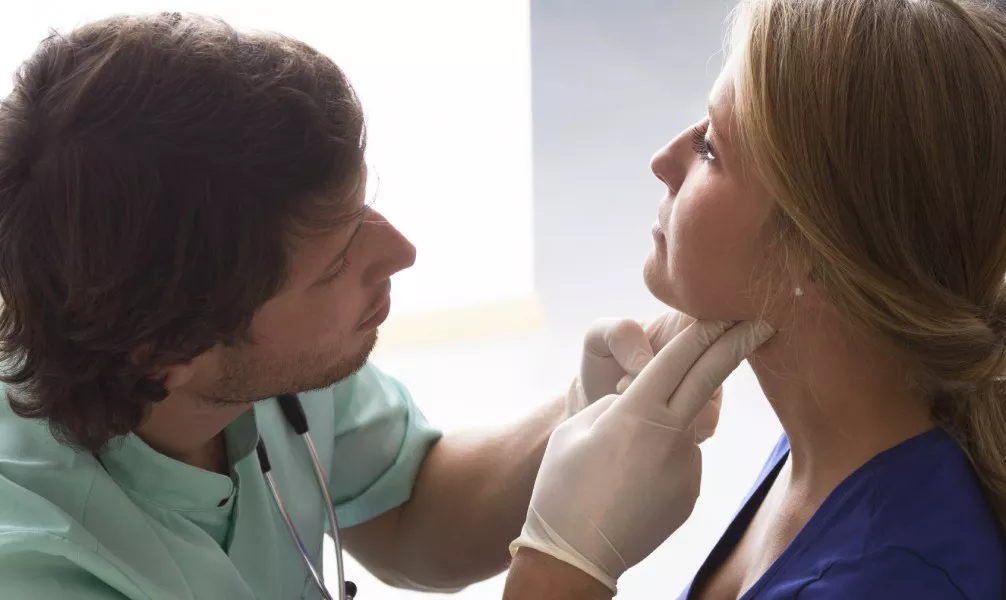by Luminis Health

The thyroid is a butterfly-shaped gland that sits in the front of your neck and controls a lot of your bodily functions. As part of the endocrine system, the thyroid makes hormones that affect nearly every organ in your body.
“The thyroid is actually one of the powerhouses of the body because it regulates your metabolism,” says Barbara Onumah, MD, medical director of AAMG Diabetes and Endocrine Specialists.
But for how important it is, it’s not uncommon for something to go wrong. Lots of people have problems with their thyroid. An estimated 20 million Americans have some form of thyroid disease. And up to 60 percent of people with thyroid disease don’t know they have it.
The thyroid can be overactive and make too much of the thyroid hormone. This is called hyperthyroidism. Symptoms include weight loss, diarrhea, palpitations, feeling anxious or jittery, increased sweating, feeling hot and trouble sleeping.
The thyroid can also be underactive, which happens when the gland does not make enough of the hormone. This is called hypothyroidism and can result in intolerance to cold, constipation, dry skin, dry hair, loss of hair, difficulty losing weight or even weight gain. Women may have irregular or heavy menstrual periods and may feel fatigue.
And although thyroid problems are common, Dr. Onumah says they are difficult to identify.
“The problem is that the symptoms associated with thyroid problems aren’t specific to thyroid disease,” explains Dr. Onumah. “They could all be due to something else.”
So what can you do if you suspect you have a thyroid problem? Don’t hesitate to talk to your doctor. They can perform a simple blood test to identify any abnormal thyroid behavior. And for those who have been diagnosed with a thyroid condition, Dr. Onumah says to make sure to take medications as prescribed.
“If you have questions or concerns, or your doctor has any doubts about regulating your thyroid, it’s always best to see an endocrinologist,” says Dr. Onumah. “At AAMG Diabetes and Endocrine Specialists, we’re ready to help.”
 Barbara Onumah, MD, is medical director of AAMG Diabetes and Endocrine Specialists.
Barbara Onumah, MD, is medical director of AAMG Diabetes and Endocrine Specialists.



